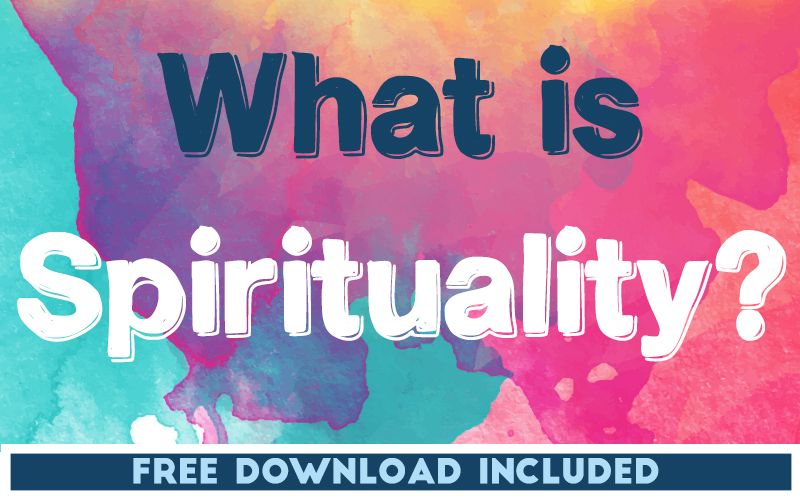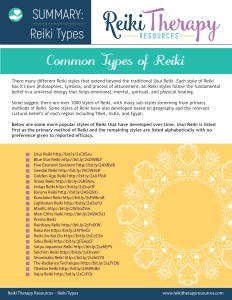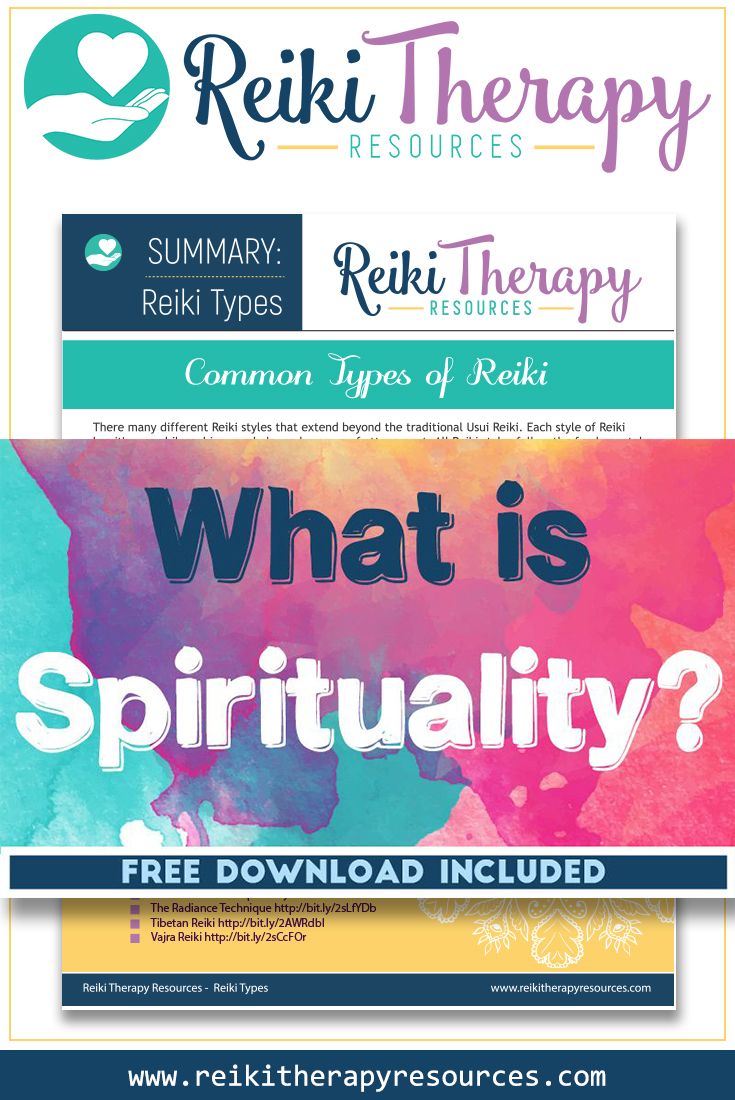
THIS POST INCLUDES:
——————————————–
1. Defining Spirituality
2. Is Reiki a Spiritual practice?
3. How to develop a spiritual practice?
4. Free Download Types of Reiki Summary Guide
DEFINING SPIRITUALITY
Historically, spirituality has often been connected with traditional religious practices. However, over the past decades, spirituality has developed to embrace a more individualistic meaning where it can have a specific meaning to each person. This means that for some people, traditional faith practices can be a way for them to develop their spirituality. For others, spirituality can be developed through non-religious practices.
Spirituality is primarily a personal experience, however, many aspects are similar across many individuals. These similarities embrace the idea that spirituality is a connection to our emotions as well as a higher purpose that includes other people as well as a purpose to life outside of ourselves.
In this sense, spirituality can denote a connection to people, animals, nature, and experiences that elevate our consciousness and emotions. Spirituality is always personal because it relates to your personal experience of purpose, intention, love, and meaningfulness.
Some may wonder what is the purpose of spirituality? For many people, it is a way to transcend beyond the everyday mechanics of living life by adding a dimension of personal and interpersonal connection with ourselves and others in our life. In short, spirituality is adding a personalized dimension of feeling and connection within our lives.
IS REIKI A SPIRITUAL PRACTICE?
There is some debate over whether Reiki is considered a spiritual practice. For some who link spirituality with traditional religious practices, they seek to identify whether Reiki has religious meaning as part of its practice. Additionally, for those who determine that religious meaning contains elements of mystery, then they may interpret Reiki as possessing those aspects as part of its makeup.
These ideas on religious meaning and mystery are often misunderstood when attempting to understand Reiki. Furthermore, these ideas usually attribute the specific meaning of spirituality using a narrowly defined set of views.
We could take the definition of spirituality that was previously explained as the following: a personal experience that is a connection to our emotions as well as a higher purpose that includes other people as well as a purpose to life outside of ourselves.
This definition does contain aspects that refer directly to Reiki. Reiki involves a universal perspective that encompasses our experiences, the experiences of others, as well as our surroundings.
Reiki connects us to our innermost personal experiences as well as provides a connection to an overall global view of life that reminds us that our purpose involves more than our daily routines and activities.
Reiki seeks to bring us back to a balanced perspective of life and helps us to embrace that part we all can play in establishing a loving, supportive, and balanced world. In this respect, Reiki can be seen as an integral part of developing an overall spiritual practice.
HOW TO DEVELOP A SPIRITUAL PRACTICE
When you know what spirituality means to you, you can then develop a spiritual practice that is personal to you. Your spiritual practice is the beliefs you develop and the activities that you enjoy to develop a spiritual connection to yourself, other people, and the world around you.
Spirituality can be a spontaneous experience, however, we can also undertake purposeful activities that introduce and encourage spirituality in our lives. When we create a spiritual practice, we actively seek to stay connected to spiritual matters in our life.
Examples of a spiritual practice might include:
Your spiritual practice goes beyond emotional development. A spiritual practice embraces all aspects of yourself including your emotions and helps you work towards connecting to all nurturing aspects of being human.
A spiritual practice will always contain what is most relevant and meaningful to you. For a spiritual practice to be effective, it must relate to your specific values, beliefs, and experiences. For some, this may involve prayer, and for others, it may involve quiet contemplation on a word or series of purposeful thoughts.
Below are some of the common elements that people use to develop their spiritual practice.
- Prayer
- Meditation and mindfulness
- Yoga
- Art or written journaling
- Affirmations
- Join a spirituality based community
- Connecting to nature through gentle activities
- Exploring self-development on forgiveness, kindness, self-compassion, empathy, acceptance
- Explore your beliefs and values on social issues
- Developing a creative outlet
- Participating in fun and joyful activities
Some of these activities may be new to you and therefore you may feel like you don’t have enough experience to draw on to create your spiritual practice. This is ok and is only a reflection of your journey to date. It’s also a reflection of how you can choose to create your spiritual journey into the future.
If you want to learn more about different aspects of developing spirituality, you can seek out some groups or community organized events that can introduce you to a specific spiritual practice activity. Your local community center may hold free meditation sessions. You might want to join a local nature walking group or seek out community events.
Exploring a spiritual practice can encourage an open minded approach to new experiences and different perspectives.
FURTHER READING
Below are some suggestions for additional reading on this topic:
FREE DOWNLOAD
SIGN UP below to receive your FREE DOWNLOAD. Once you enter your email address, you will receive access to the Free Types of Reiki Summary Guide.

BUILD YOUR REIKI REFERENCE MATERIALS:
Pin this image to your Pinterest board.

SHARE KNOWLEDGE & PASS IT ON:
If you’ve enjoyed this post, please share it on Facebook, Twitter, Pinterest. Thank you!
